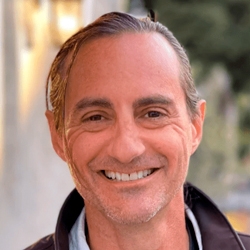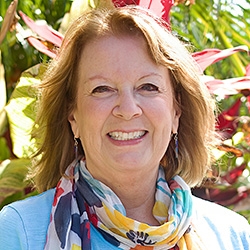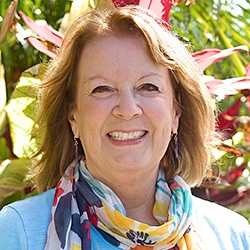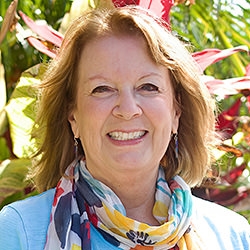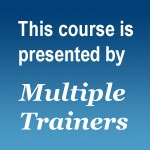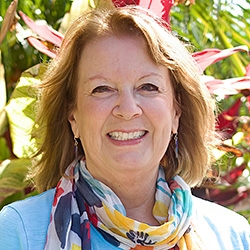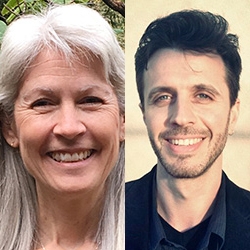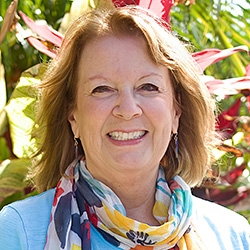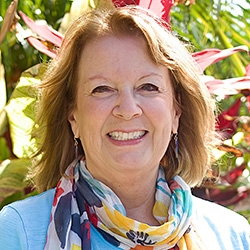

Search Results: expression
-
- Learn, practice, and integrate the basic components of NVC
- Understand how to use observations, feelings, needs, and requests
- Grow your communication skills and strengthen your relationships
- Discover how to express yourself honestly and authentically!
-
Learn when to use the two types of requests in the practice of Nonviolent Communication: Action Requests and Connection Requests. Both are important when working through conflict or difficult situations and for building connection.
-
Trainer Tip: What does integrity mean to you? Each person has a different definition. For me, integrity means that I live in harmony with my values.
-
Dear friends,
This morning, I woke up thinking about a poignant moment from a few years ago. My wife, Kim, and I were driving down a busy 4-lane road, and we were in a hurry to get somewhere important. Then we saw a mama duck with many small ducklings trying to get across the street. Kim pulled over, and we both hopped out to stop 4 lanes of traffic so Mama Duck could get across with all her ducklings. The last one had some kind of injury, so it took a very, very long time for all of them to make it across.
-
Two NVC trainers went into dangerous, war torn territory to share the skills they found so valuable but end up learning that they need to first apply those skills before those they came to help could receive what they had to offer. Only when the foundation of connection and trust was built could they mediate the conflicts using empathic communication.
-
Trainer Tip: When someone acts in baffling ways we can either wonder about what’s going on with the other person, create our own stories about it (blame, resent, make assumptions), or inform ourselves by asking. This is an opportunity to learn something new.
-
It is the first day of December and it seems to me as if 2023 went by with a flash. I have felt deep despair about the growing division between people and the devastating impact it has had on human beings, all life in fact, including our planet. And, I have also experienced many moments of joy and satisfaction this year.
-
Penny Wassman shares this first workshop exercise as an opportunity to build connection.
-
Differing worldviews can lead to conflict, discover pathways to greater understanding.
-
One of the most important things you can do to live a meaningful and rewarding life filled with vitality is reclaim your emotions. Eric offers a tip to reclaim your emotions, rescuing you from the numb and deadening state of “fine."
-
Trainer Tip: When we are authentic about who we are, and our preferences, we give everyone and ourselves a better opportunity to open up dialogue about how to meet our collective needs better. We simply express our truth, and in that way we value our own needs as much as those of others.
-
Observation is the awareness of our sensory perceptions and thoughts, separate from evaluations and judgments. Feeling involves bodily sensations and emotions, distinct from "faux feelings" that mix thought and emotion. Needs encompass universal human requirements for survival and wellness, while thoughts and evaluations express needs. Requests are rooted in connection and invite true willingness, rather than demanding compliance.
-
Observation is the awareness of our sensory perceptions and thoughts, separate from evaluations and judgments. Feeling involves bodily sensations and emotions, distinct from "faux feelings" that mix thought and emotion. Needs encompass universal human requirements for survival and wellness, while thoughts and evaluations express needs. Requests are rooted in connection and invite true willingness, rather than demanding compliance.
-
Ask the Trainer: Is a confidentiality agreement typically used in NVC practice groups?
-
Explore NVC’s core elements alongside universal spiritual principles.
-
How excited do you get about connecting with people who are proving themselves right and who act like they know it all? Do you prefer the company of not-knowers who are in awe of the mystery of life and exploring with humility and innocent curiosity? Masking our vulnerability in not-knowing can point to deep wounds inside us, where perhaps the common denominator is our desire to prove our worth.
-
Trainer Tip: Mary explains the NVC principle known as the "protective use of force."
-
In this book excerpt, Kathleen and Jared offer a path to reach deeper clarity, distinguishing between revealing ourselves and projection.
-
Trainer Tip: Without knowing our feelings, its harder to live fully present, take care of ourselves, and make sound decisions. If its difficult for you to know what you feel and to express your feelings, consider reviewing a list of feelings, practice expanding your feelings vocabulary, and naming your feelings.
-
Trainer Tip: Empathy is a process in which we acknowledge and understand others' experience without judging or bringing up our own life experience. It can defuse a violent situation and anger in seconds, plus provide a clarity that catapults someone to a deeper level of understanding. The process is simple; listen for their feelings and needs. It can be healing for them to be deeply understood.
Quick Links

Stay in Touch!
We value your privacy, won't share your email address and you can easily unsubscribe any time.

